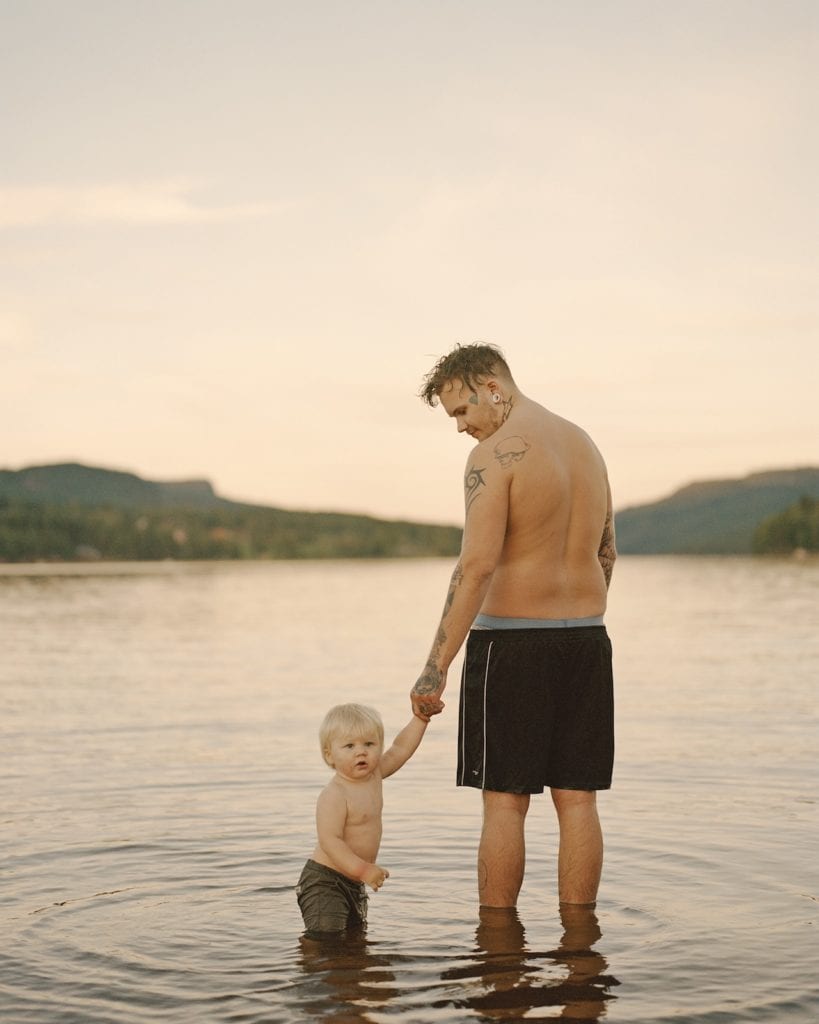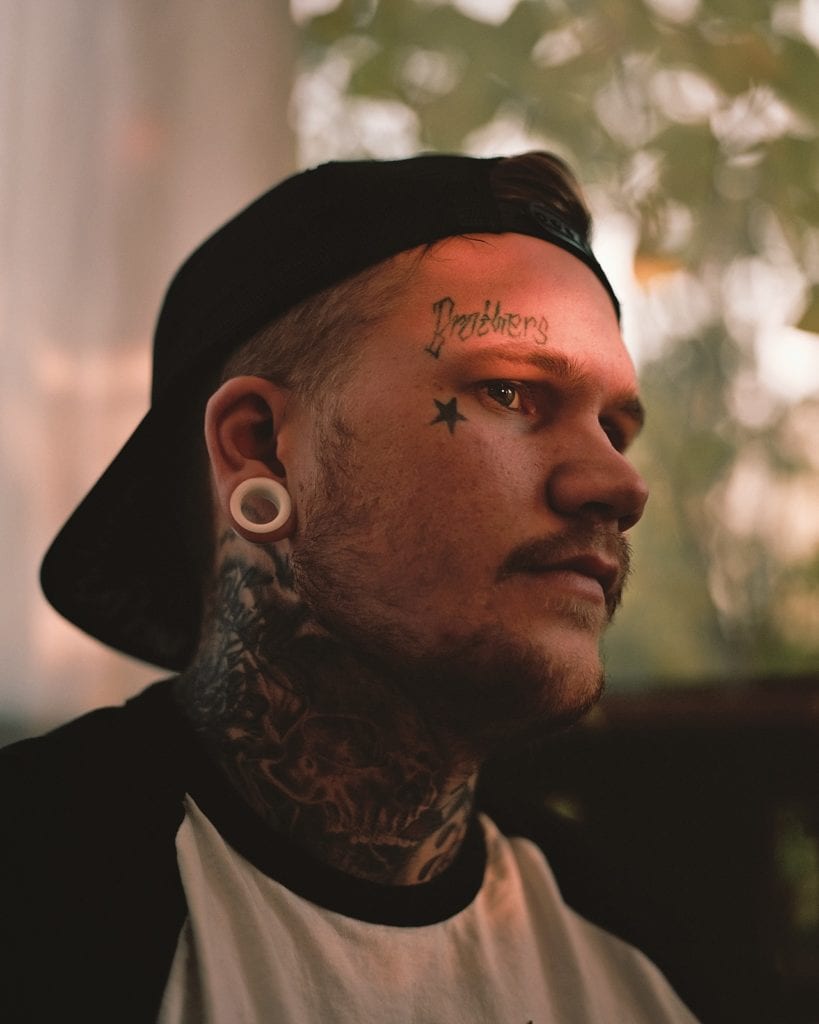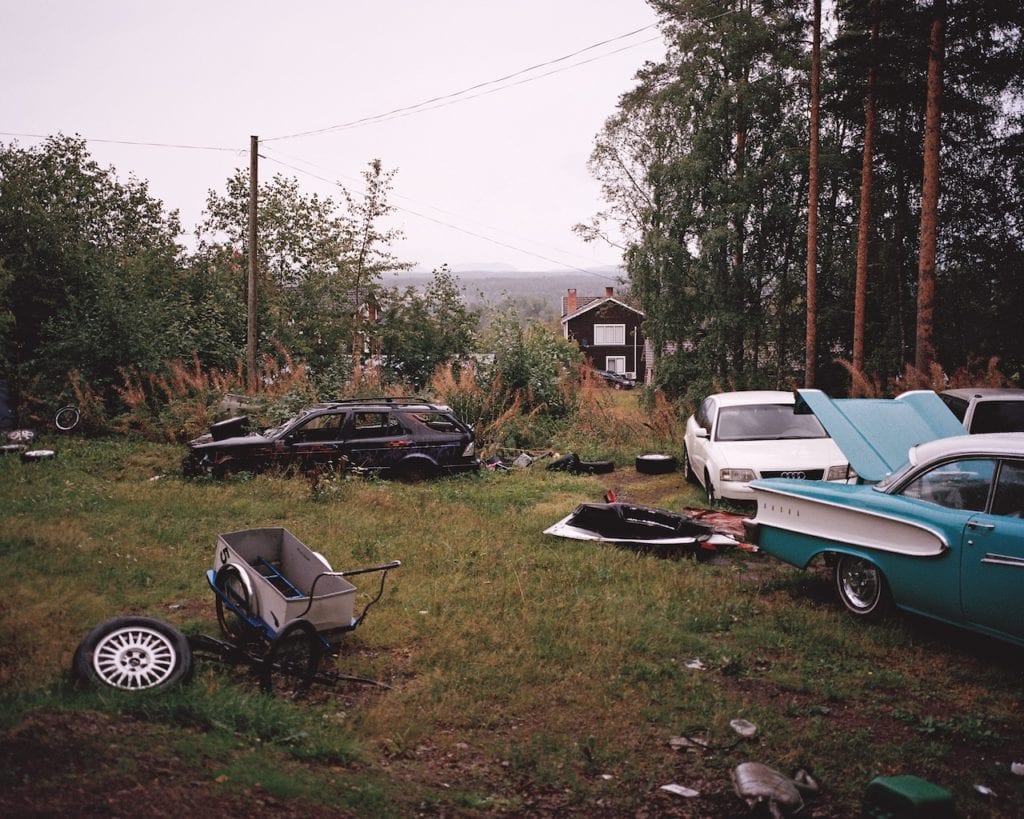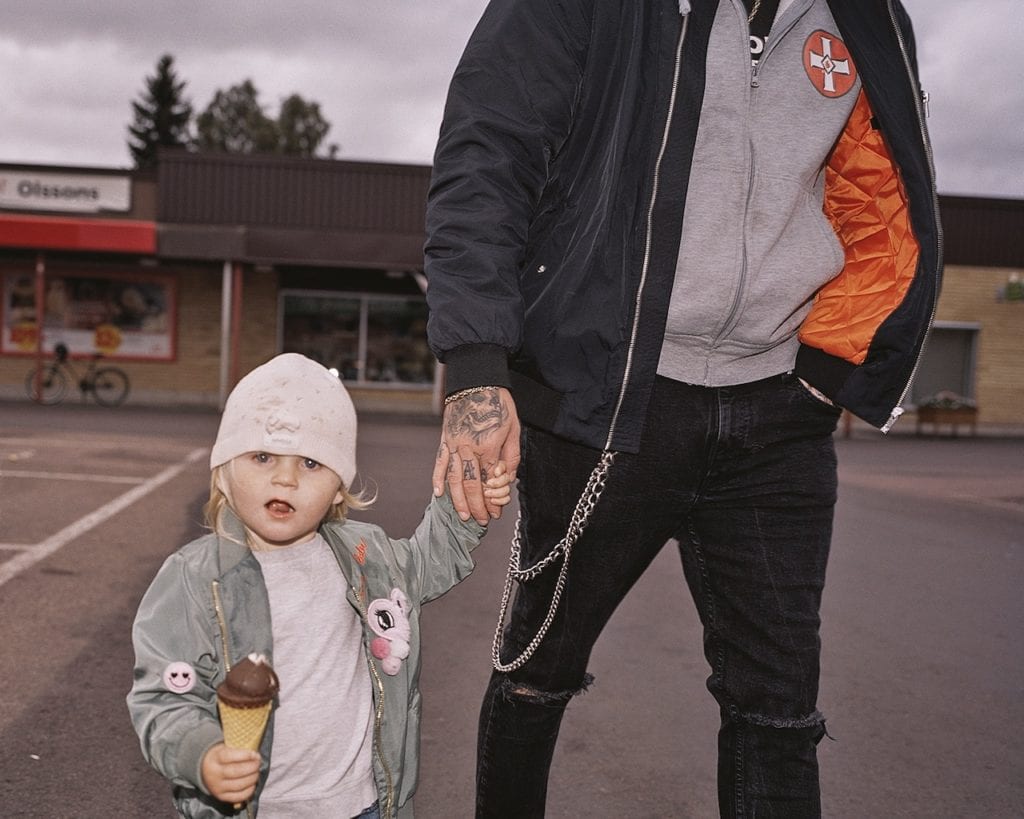In Sweden, they call them ‘raggare’. The word translates literally as ‘rebel against’, but more simply, it refers to rockers. The subculture has its roots in Sweden’s neutral status during the Second World War. The country was largely untouched by the war, so when Sweden began to receive aid from the Marshall Plan, its economy boomed, and for the first time, Swedish working classes and its youth were able to buy cars.
The 1950s was the birth time of what we now know as youth culture. James Dean’s Rebel Without a Cause was released in 1955, creating an iconic figure to follow – the American greaser, with the hot rod cars, tattoos and slicked hair. When they first began appearing in Sweden, something of a moral panic ensued, and the anguish of established society, ostensibly concerned with intoxication, sex and joy-riding, was captured in the 1959 Swedish film Raggare!. The subculture has endured through to the modern era, retaining its rural, blue-collar ethos, but Sweden’s working classes have not always enjoyed such rude health. As the industries they relied on contracted in the early 1990s, communities of young men and women found themselves unable to provide for their families.

Dutch photographer Pascal Vossen moved to Sweden as a student, remaining for a decade before studying for an MA in photojournalism and documentary photography at the London College of Communication. And it was while here that he began working on a project exploring Swedish raggare culture. On one excursion, at an annual American car meet, he came across an enigmatic yet troubled man named Tommy, who hailed from the forested region of Dalarna in the rural west, and was heavily invested in the raggare lifestyle. Reacquainted the following year, Vossen realised “he would be the perfect personality to portray raggare” and began a continuing project with Tommy and his family life at its heart.
Tommy is 22. He has a long criminal record, no qualifications, wears fascist insignia, and must support and raise three young children from different mothers. Vossen met him during the summer of 2015, a year before he was sentenced to spend 22 months in jail for a serious aggravated assault on another young man. His youngest child was born just a few weeks after he was imprisoned. Yet Vossen was surprised by Tommy’s gentleness and lack of confidence. “The first thing that struck me is how surprisingly introverted he is,” the photographer says. “Over time, he became more inclusive and relaxed when I was around, up to a point where he asked when I would visit again. But he never talks much, not even with his friends. He tends to avoid challenging conversations by choosing to become a dominant presence.”


Tommy’s upbringing was problematic, his family fractious. He has little to no relationship with his biological father, who was violent and abusive, and grew up trying to fend for his mother and four younger siblings. “He can be gentle and loving toward his family and friends and adores his children,” Vossen says. “His friends call him the ‘Gentle Bear’.” Vossen was surprised to find a letter from Tommy written to him from the confines of prison. “One of his children had decorated the envelope with little drawings,” Vossen says. “He was released in the summer of 2018 and I got the chance to be there, to photograph his first day out of jail spending time with his children.”
Yet despite Vossen’s presence in his life, Tommy has shown little interest in the photography series. “Unlike his sisters, he isn’t very engaged in the reasoning behind it when we talk about the project,” Vossen says. “He supports the idea of me telling his story, but doesn’t want to be bothered with the details. A lot of what I know about him comes from conversations with his sisters and friends. Slowly, I am trying to have him share more with me and was hoping to do an audio interview with him to talk about his childhood, being a father and his time being incarcerated. I suspect this will be difficult for him, but I am hopeful he will want to talk about it.” Tommy has recently been apprehended again, and Vossen is concerned he has become institutionalised, and finds prison less anxiety- inducing than the struggles and demands of fatherhood on the outside.

Vossen will soon become a father himself, and is trying to find a way of providing his own personal perspective through his imagery of Tommy’s life. “I need to make sure I tell his side of the story, even though I don’t agree with the things he does,” Vossen says. “But becoming a father myself has made me more interested in the wellbeing of his children. I wonder how he will balance his life choices with fatherhood, and if his destructive lifestyle will continue into the next generation.”
–
This article was originally published in issue #7883 of British Journal of Photography magazine. Visit the BJP Shop to purchase the magazine here
